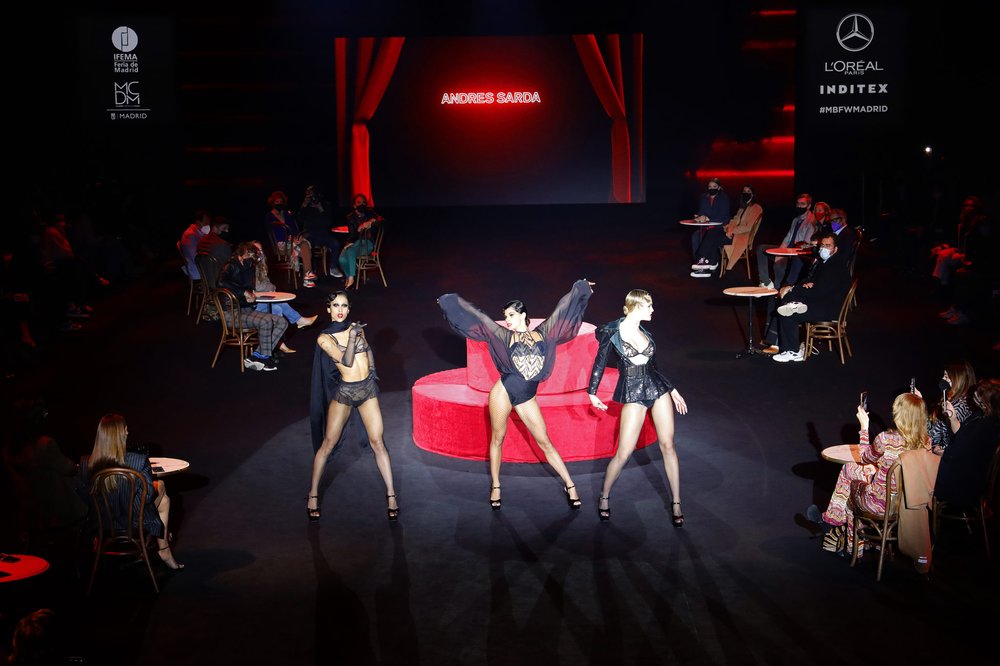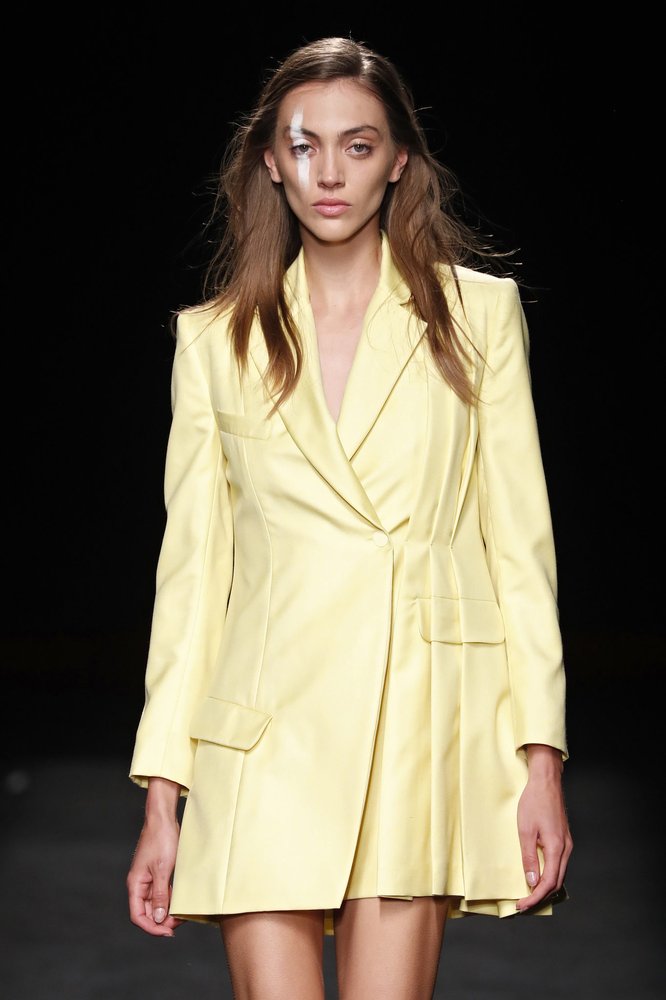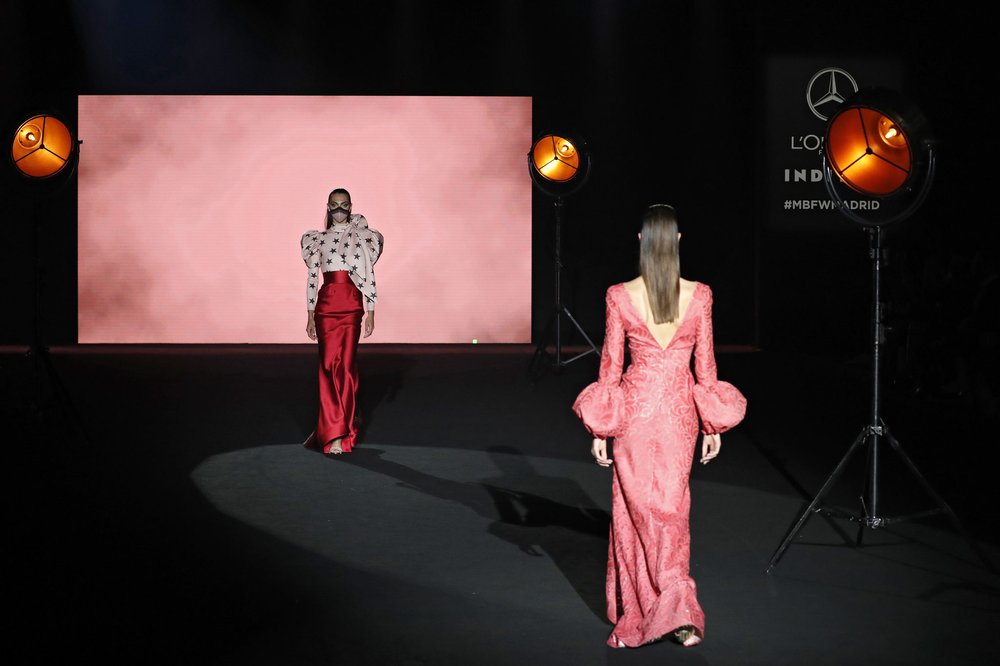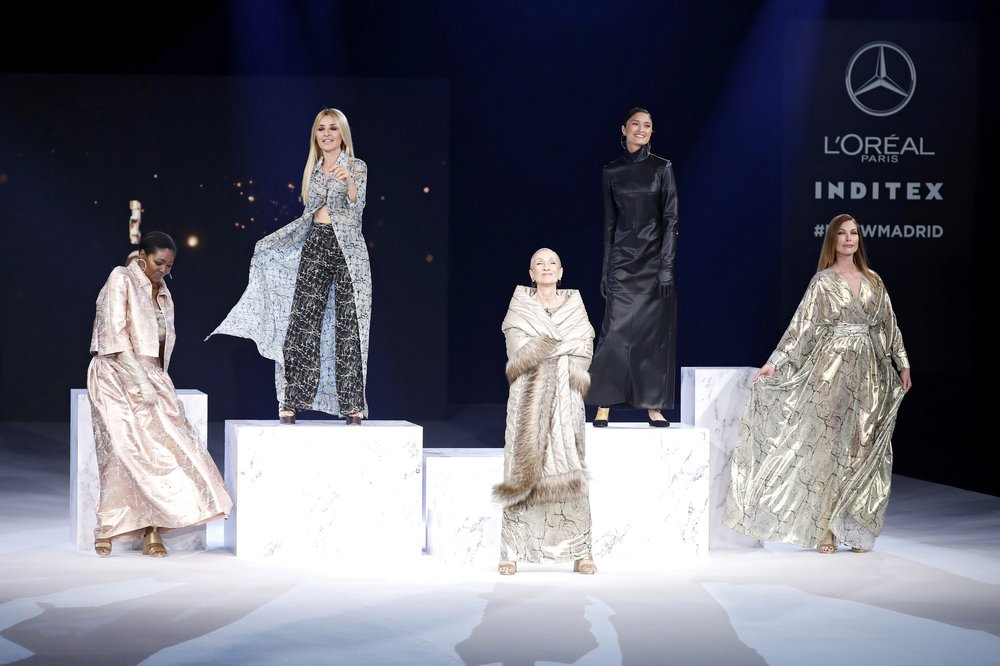MBFW Madrid brought its 73rd edition to a close on Sunday April 11, the
second time the fashion week was held in the Spanish capital during the pandemic. The event was staged again in hybrid format, a compromise solution that allowed organising body Ifema to hold catwalk shows with live audiences, albeit with attendance reduced by 30%. The shows were also streamed live on Ifema’s site and social media platforms, inaugurating a renewed season of fairs and shows by the Madrid organisation.

As the event organiser had indicated last January, the aim was to “create the safest social and health environment for designers, sponsors and event attendees alike.” As a result, hydro-alcoholic gel was available everywhere at the latest Madrid fashion extravaganza, face masks were used extensively and all participants, down to the last assistant, took rapid antigen tests.
In this somewhat unusual context, MBFW Madrid kicked off on Thursday April 8 with the shows of established labels Andrés Sardá, featuring a lingerie collection by Nuria Sardá, and Maya Hansen, who returned with her signature corsets after being absent for several seasons. Both labels presented their latest collections with a live performance before broadcasting their videos, while Pablo Erroz and Otrura instead staged catwalk shows marking their maiden appearance at the event. Otrura, a contemporary couture label led by Sergio Lazaro and Veronica Abián, won the best collection prize awarded by L'Oréal Paris.

Seville-based couture label Fernando Claro showcased flowing garments in which tassels mixed with Andalusian-style dresses, in a nod to the bullfighting tradition. Galician designer Roberto Verino was keen to uphold the notion of “quality rather than quantity,” with a collection that invited a reflection on fashion consumption. Classic tailoring met urban and sportswear style in the day’s last collection, by García Madrid.
The event’s second day was reserved to shows by industry heavyweights like Ágatha Ruiz de la Prada, who told Spanish news agency EFE that “people are completely bewildered, after wearing tracksuits for a year,” and advocated a “global rethinking” of the fashion sector, before presenting an extensive collection consisting of 50 colourful looks.

A yearning for a more festive mood was reflected in the party dresses by Hannibal Laguna and in the garments featuring dual-use technological materials by Custo Barcelona. “This situation has been going on for so long. I don't know how much longer people can resist. We are at the end of our tether,” the Catalan designer told EFE, explaining his concern that “buying clothes is an emotional and social affair, and these are precisely two of the areas affected.”
For its part, subversive label Brain&Beast did not miss the opportunity, presenting a “tribute” to its moments of joy. While Maite by Lola Casademunt, a regular at 080 Barcelona Fashion, made its Madrid debut with a collection inspired by London's Chelsea neighbourhood. Andalusian designer Ernesto Naranjo went for an atemporal collection, labelled with the number ‘007’ and presented in digital format, portraying a “combative and rebellious” mood.

The last day dedicated to shows by established designers, Saturday April 10, featured Ángel Schlesser, a label whose goal is to “empower women” through clothes inspired by notions of diversity and inclusivity. The same day featured a show whose audience included several Spanish government representatives, something unusual for an Ifema event. Ulises Mérida presented a collection, developed in collaboration with the Apramp association, whose garments were made by 12 women who were victim of human trafficking. Among the guests, Equality Minister Irene Montero, Home Secretary Fernando Grande Marlaska, Deputy Prime Minister Carmen Calvo and the deputy mayor of Madrid, Begoña Villacís. Begoña Gómez, the wife of Spain’s Prime Minister, attended instead the show by artisanal label Guillermo Décimo.
Among the other collections on show, there was Valencia couture label Isabel Sanchís, whose designer commented on the newly emerging fashion show format, saying that “we are missing in-person audiences, but through live streaming we are able to reach a wider public.” And Mesa, the label by Juan Carlos Mesa, also the creative director of Ángel Schlesser, a label specialised in evening and occasion dresses. After issuing a strong call for equal opportunities for women at the Ángel Schlesser show, with celebrities like actress Cayetana Guillén Cuervo, the designer staged a social media rave at his eponymous label’s show.

Sunday April 11 was the day reserved to the EGO programme, dedicated to emerging talent. Among the labels presented, Corsicana, Cast Studio, Sergio Villasante, Velásquez, Georgiela Studio, Montenegro and Colombian label Rubearth, whose collection was recognised with the €3,000 Mercedes-Benz Fashion Talent Award.
After four intense days dedicated to Spanish fashion, MBFW Madrid gave way to ‘Madrid es Moda’, a week of events in the Spanish capital designed to energise an industry that accounts for 2.8% of the country’s GDP.
